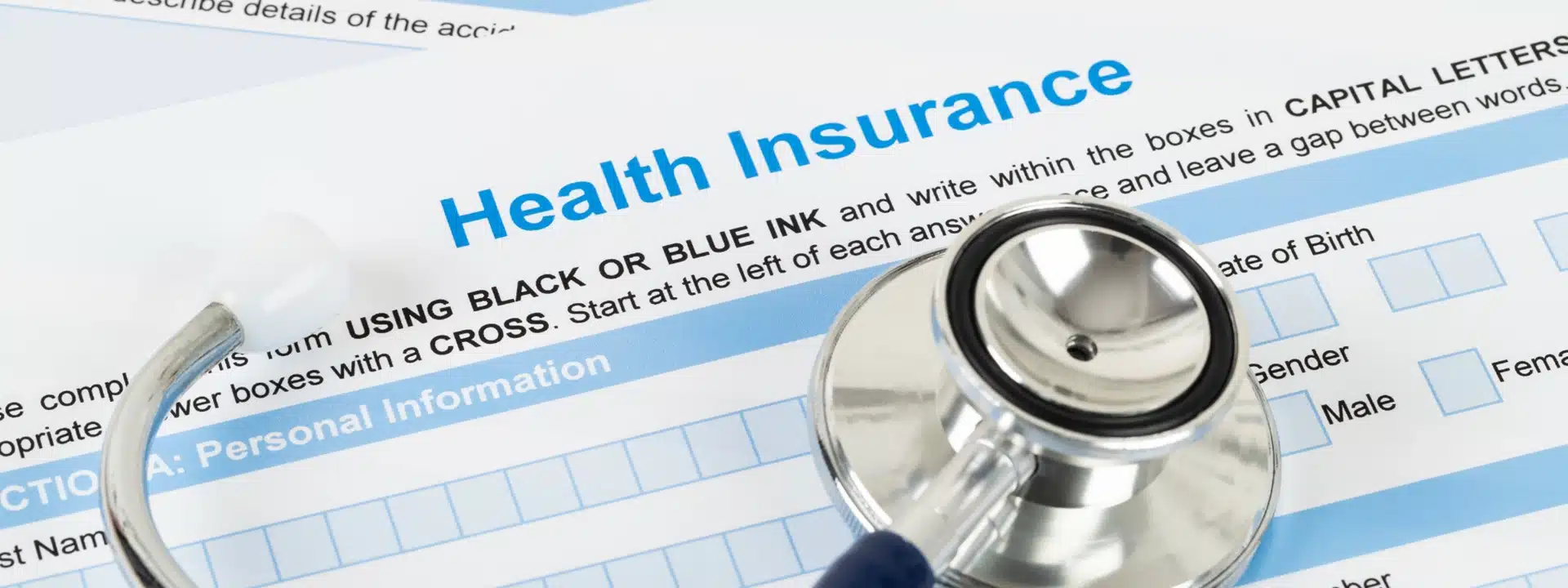It was 2:43 a.m., and I was in a cozy mess. I got cereal in a mug, wearing a hoodie, and searched “ADHD treatment center for adults” on my phone.
But there I was, staring at a few half-written emails, five unstarted projects, and laundry that laughed at me. Oh, and deadlines? I missed them. Appointments? I also missed them. And trash day? Let’s just say it was a regular feature in my calendar.
I thought I was lazy or unmotivated. I felt broken.
Then, a TikTok video popped up. A woman shared her ADHD journey—only realizing she had it in her 30s. I chuckled, rewound, watched twenty more clips, and soon took an ADHD quiz at 3:12 a.m., cocooned in a weighted blanket.
And guess what? I wasn’t a disaster. I wasn’t even unique. I was one of millions of adults walking around with undiagnosed ADHD.
So, I booked an appointment at an ADHD treatment center for adults. The diagnosis? My brain was wired a bit differently, leading to things like executive dysfunction, time blindness, and emotional dysregulation. These traits? They’re all part of ADHD, not a character flaw.
Why haven’t we recognized this sooner? ADHD still feels like it’s for 10-year-old boys only. Why wait so long to give ourselves compassion we’d easily offer kids?
How many failed jobs, wrecked relationships, and overflowing planners does it take to realize something’s off? When do we stop pretending this chaos is normal?
ADHD Isn’t Just for Kids. Adults Suffer, Too.
Symptoms Don’t Disappear After Childhood
Do you think ADHD vanishes after childhood? Think again.
A 2024 study by Brittany Haskell and colleagues tackles this myth head-on. They explore how ADHD manifests in adults—and it’s not what most of us expect.
Their work, published in The Journal for Nurse Practitioners, highlights current clinical research and patient cases. They want primary care providers to identify adult ADHD better.
Haskell et al. started with a real patient. Ashley, 38, never got diagnosed as a kid. She fought focus issues, flunked college, and felt shame. Does that ring any bells?
Ashley’s plight is common. Up to 75% of adults with ADHD never got diagnosed in childhood. Many faced labels like lazy or disorganized instead of receiving help.
The study found that 3.3% to 4.4% of U.S. adults have ADHD, but only one-third know it. That’s a sea of adults walking around undiagnosed while missing deadlines and ruining relationships.
ADHD symptoms change as we age. Hyper kids grow into restless adults. Dreamy students become overwhelmed professionals. Adult symptoms include procrastination, emotional outbursts, disorganization, and time management hurdles.
The study also outlined three subtypes:
- Inattentive
- Hyperactive/impulsive
- Combined.
Adults may not bounce off walls but forget tasks, interrupt coworkers, and wrestle with daily overwhelm. Key risk factors include genetic heritability (up to 75%), neurotransmitter issues, and environmental stressors. ADHD isn’t a riddle. It’s biology that meets life.
One critical takeaway: Most U.S. providers lack official adult ADHD guidelines. They lean on Canadian (CADDRA) and UK (NICE) protocols, creating a huge gap in adult care.
When diagnosed, treatment focuses on education and goal-setting. The right plan targets daily functioning. Adults crave support for jobs, relationships, and life management.
Sure, medications can help. But they’re not the only route. NICE guidelines suggest using meds only after other methods have failed. Many adults also benefit from therapy, coaching, or structured support for ADHD management.
Diagnosis and Treatment Are Available
So, yes—ADHD is alive and well in adulthood, and it’s treatable. But only if you know what you’re looking at and find the right ADHD treatment center for adults.
Still, do you think ADHD is a kid thing? Ask Ashley.
Stimulants Aren’t the Only Option
Concerns About Medication
Many adults hesitate when it comes to stimulant medications. Concerns over side effects or dependency make them look for alternative treatments.
Exploring Non-Medication ADHD Treatment
Guess what? Pills aren’t your only hope. Not even close.
A 2023 study by Nasri et al. tested two robust non-medication approaches: internet-based cognitive behavioral therapy (iCBT) and internet-based applied relaxation training (iART). They compared these to the typical “let’s just medicate” approach.
The trial involved 104 adults with ADHD. About 67% were already on medication but needed more. So, researchers assigned them to 12 weeks of either iCBT, iART, or standard care and then tracked their progress for a year.
The findings? Both iCBT and iART significantly improved symptoms at three months (p < .01). The measure used? The Adult ADHD Self-Report Scale (ASRS). The TAU group didn’t budge.
Even better? The effects of iCBT and iART lasted well beyond the treatment period, showing significant improvements over 12 months (p < .001). iCBT’s effect size was 0.67 at three months—that’s huge.
Surprisingly, both methods worked about the same (p = .53). 25% of participants in iCBT and iART were “treatment responders,” versus just 3% in TAU. Now, that’s a game-changer.
Bottom Line?
Therapy works—especially when paired with ADHD medication. Professional guidance from an ADHD treatment center for adults helps tailor your approach. Remember, you have options.
Therapy Isn’t Just for Trauma
Misconceptions About Therapy
Let’s address myths about therapy. It’s not a last resort, and it’s not only for crises or serious trauma. Forget the stereotypes.
Benefits of ADHD Therapy for Adults
Eddy and Martin (2023) made the case for cognitive behavioral therapy (CBT) as a primary treatment for adult ADHD. Their chapter in Clinical Handbook of ADHD Assessment and Treatment Across the Lifespan dug deep.
CBT isn’t fluff. It’s structured, skill-based, and supported by decades of data. Eddy and Martin’s review showed that CBT consistently works across formats—solo, group, and hybrid.
The best news? Combining CBT with medication leads to even better results. We’re talking real focus, planning, and emotional regulation improvements. There’s nothing magic here—just solid science.
Eddy and Martin discussed the most effective CBT methods: time management training, cognitive restructuring, and problem-solving techniques. These are practical tools for better functioning at work, at home, and relationships.
Their takeaway? CBT is essential, especially for adults dealing with ADHD chaos.
So, if you think therapy isn’t for you, think again. ADHD therapy helps with structure, stress, and self-regulation. That’s not only relevant—it’s crucial.
Support Groups Aren’t a Sign of Weakness
Feeling Isolated
Living with ADHD can feel isolating. You’ll be able to think no one gets your struggles.
Joining ADHD Support Groups for Adults
Skliarova et al. (2024) found that group interventions work wonders—their review of eight studies uncovered great news. Adults with ADHD reported feeling supported and noticing real improvements.
Group attendance? High. Dropout rates? Low. We’re onto something here.
Participants shared strategies, improved self-esteem, and learned a lot. Connecting with others made a real impact. It’s not just about advice—it’s about camaraderie.
These groups are accessible, whether in person or online. There’s no shame in joining. It’s a smart way to tackle ADHD together.
Coaching Isn’t Just for Athletes
Difficulty with Daily Tasks
Managing daily tasks can get tricky with ADHD. Standard methods often fall short. Traditional approaches can’t solve ADHD’s unique daily challenges.
Benefits of ADHD Coaching for Adults
ADHD coaching offers a different, more personalized approach. Ahmann and Saviet (2024) created the ADHD Coaching Engagement: Manualized Intervention (ACE-MI), a structured model that guides coaches in supporting adults with ADHD.
Their research, based on eight expert coaches and five focus groups, led to a clear set of guidelines. ACE-MI focuses on helping adults set realistic goals and build supportive routines.
Results showed adults with ADHD benefited significantly from coaching. They improved time management, productivity, and habit formation. Ongoing support made navigating daily tasks less daunting.
So, coaching isn’t only for athletes. It’s a practical tool for everyone facing ADHD hurdles. A personalized plan like ACE-MI can lead to real-life improvements.
Inpatient Treatment Isn’t a Last Resort
Severe Symptoms
Some adults deal with severe ADHD symptoms that disrupt their lives. For those individuals, outpatient options alone might not cut it.
Considering Inpatient ADHD Treatment for Adults
Inpatient programs offer a controlled setting with robust support. These facilities combine therapy, medication management, and skill-building activities. Goals include stabilizing symptoms and enhancing daily functioning.
A recent JAMA Psychiatry study by Mueller et al. (2025) tested whether lysergic acid diethylamide (LSD) could reduce ADHD symptoms. Participants took LSD twice a week for six weeks. The outcome? There is no major difference between LSD and placebo groups. Both saw symptom reduction, but LSD didn’t outshine the placebo.
While LSD proved safe, it wasn’t the breakthrough many hoped for. This study emphasizes the importance of traditional inpatient care for severe ADHD symptoms. Inpatient treatment provides a structured, trusted route to symptom management.
For adults facing intense ADHD challenges, inpatient residential treatment is a reliable solution. If outpatient care isn’t working, it’s time for a different approach.
Some Final Thoughts
ADHD doesn’t vanish after childhood. It changes. It complicates work, relationships, and daily life. Recognizing the signs and getting help matters.
An ADHD treatment center for adults offers real structure, tools, and change. From diagnosis to long-term care, you get a team in your corner.
One of our clients put it best:
“Alter Behavioral Health truly saved my life… I’ve been able to live like a person, not like a patient… The changes my family and friends have seen are incredible.”
Why wait to feel that kind of progress? Why keep pushing through alone?
Alter Behavioral Health is ready to help. Call today. You deserve focus, peace, and care that works.



